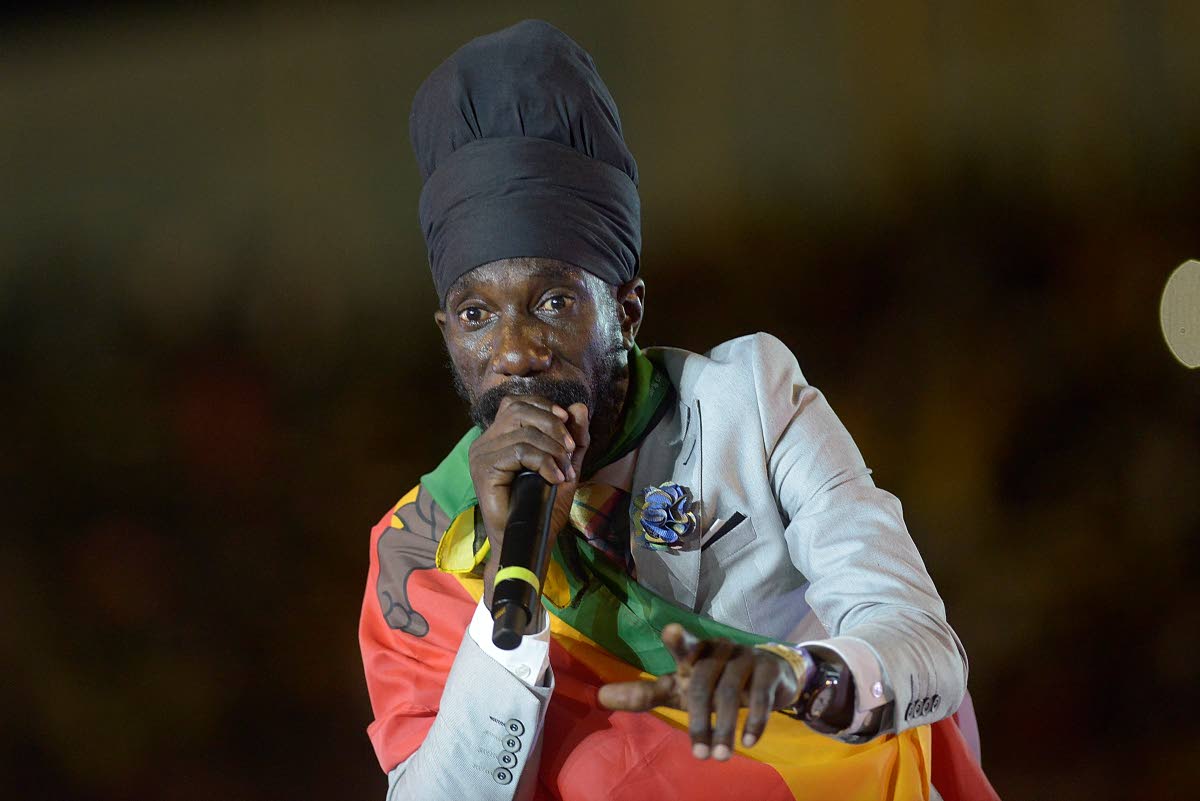Sizzla Urges Young Jamaican Artists To Secure Their Music Publishing Rights

Sizza Kalonji is once again imploring upcoming Jamaican artists to ensure they secure their intellectual property and publishing rights, by engaging in deals that are beneficial to them and not onerous, as has been the fate of numerous entertainers in the past.
“Di likkle young artiste dem weh a rise up, tiddeh, tiddeh day, mek sure oonu get oonu likkle publishing (rights) an oonu likkle royalties. An rememba dis, all di artiste dem, try own oonu masters, yu hear? Or go 50-50 wid di producers dem. Try own oonu masters. A different time, different age. A di cybernetic age dis enuh,” Sizzla cautioned during an Instagram live session a few days ago.
In January 2015 following his performance at Rebel Salute, at the Grizzly’s Plantation Cove in St Ann, Sizzla called on Jamaican artists to put measures in place to prevent themselves from being exploited by unscrupulous producers and publishing companies.
“Nuff a dem big music company and publishing company yah, and producers and promoters try teef wi publishing when wi sing and deejay and do wi likkle video. When dem (artiste) did a rise, di people dem boo dem, an run dem, an dem go home go practice and come back betta. Now dem get betta, oonu a set up business and contract fi teef dem likkle money, it naw go work!” Sizzla had declared.
In further expressing his outrage at the conduct of the unscrupulous producers and publishers, Sizzla had issued a notification to all royalty collection entities including the American Society of Composers, Authors and Publishers (ASCAP), PRS (Performing Right Society), JACAP (Jamaica Association of Composers, Authors and Publishers), PMI (Phoenix Music International) declaring that he was the sole author of his songs and had rights to all associated royalties.
“Some a oonu producers … when oonu get mi song, oonu go register it, bout oonu write it. Well, me a tell ASCAP, PRS, JACAP, PMI – everyone a oonu, no man no write fi mi song dem! A mi alone write dem, afta mi sit dung an meditate, see di black people say dem a suffa, caw mi think bout black people. An oonu naw help wi; oonu run lef wi as oonu si Babylon a come,” he said.
In a September 2017 article titled Business ethics lacking in music – Artistes shun Contracts , which was published in The Gleaner, record producer Michael Bell had rebuked Jamaican artists for failing to take steps to ensure they understand the business aspect of the music.
Bell had said that in some cases the producer or members of the entourage have had to contribute lines for songs, but oftentimes, the entourage members are exploited as the artists do not give them any publishing rights for their contributions.
He also said that after songs are completed, some of the artists refuse to sign inducement letters or the publishing split sheet, the legal document which states who wrote what percentage of a song recorded by a band or an artist. He said “it is a regular thing producers face, but no one is complaining because they are afraid of being sidelined’.
“It is hard to do real business with them and that is why international acts are benefiting more from our music than us … our artistes are too shifty, dishonest and selfish … and then they make the hype get to their heads and kill their careers,” he told the newspaper.
The Gleaner article also quoted consultant Cara Vickers as saying Jamaican artists “have no excuse for poor business practices since information is readily available”.
She also said that there were too many instances of music being leaked, released or stagnant, due to either party not being able to negotiate, communicate or comply with an agreement”.
“The truth is, producers and beat makers must sign off on a publishing split sheet, agreeing on terms, percentages and release conditions, along with a plan of execution. Unfortunately, very few people conduct business in this manner and so we are left with many people disgruntled because of several reasons,” she had said.
Vickers had also said it was incumbent on producers to also explain the terms of the agreement to artists in order to “avoid confusion or future entanglements”. She said that after recording for a label, artistes have the legal right to sign off on the song’s release, which if not done prior to its release, could result in lawsuits and removal of content.
“It is unfair when music is published without the right protocols observed, and artistes need to stop recording without agreeing to terms. Likewise, producers need to stop recording acts before outlining the release contract plan. A song must be signed off by both parties prior to release,” Vickers had stated.
